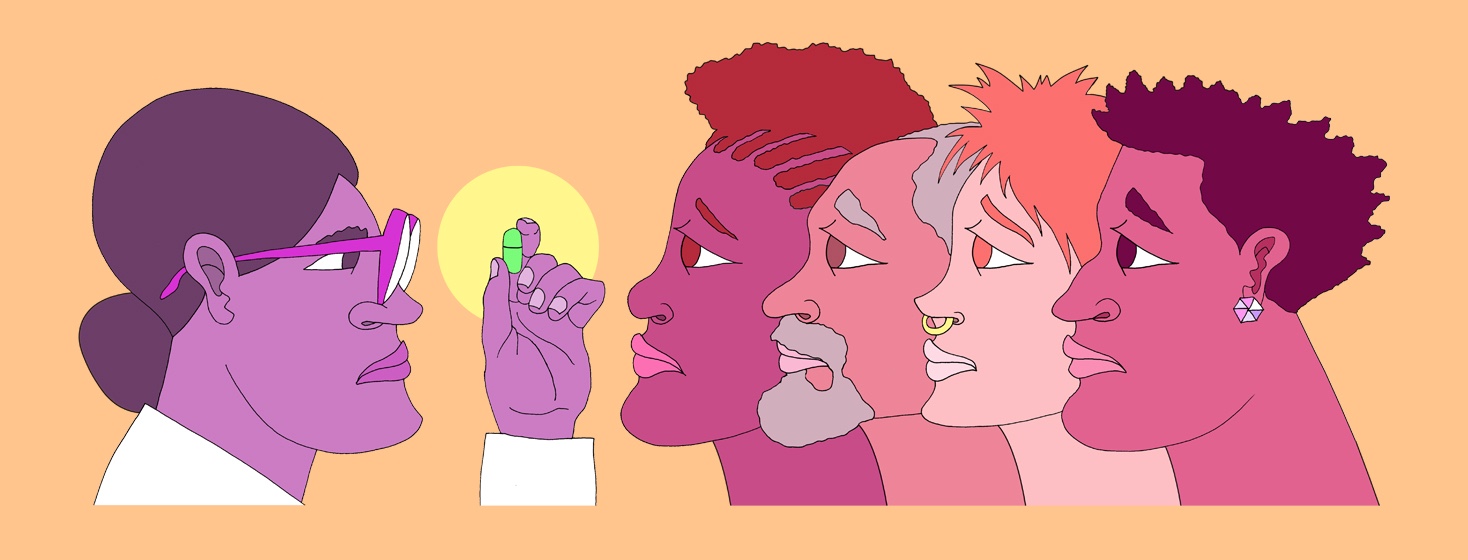Treatment is Prevention, Part 2
In Treatment as Prevention (TasP), Part 1, I reviewed the science that allows us to believe in U=U, or Undetectable = Untransmittable. Why don’t more people know about it, or believe in it? And what questions still have not been answered?
It’s amazing news, right? And yet, if you have not heard about it, you are not alone. The chance you’ve heard about TasP from your healthcare provider depends on where you live. In the Positive Perspectives survey of people living with HIV in 25 countries, the percentage varied from 38 to 87 percent, with an average of 66 percent.
Barriers to raising awareness about TasP
This means that a third of people living with HIV have not discussed this with their healthcare provider. Hearing U=U from your doctor is important because people still tend to trust them as a source of reliable information.1,2-4
But, doctors may not be clear in their word choices. "Effectively no risk" may feel quite different from "no risk." What’s that about? No within-couple transmissions were seen in these studies. But studies only look at a certain number of people, so researchers use statistics to estimate the chance that an event could happen if they were able to monitor everyone. The CDC (Centers for Disease Control and Prevention) estimates the worst-case number to be between 0 and 0.14 percent per year (less than about 1 in 700 chances per year). To be clear, this is not what they saw in the study. They actually saw zero transmission.5
Healthcare providers also may worry that if people stop using condoms, they’ll get other sexually transmitted infections. And 1 study did find that youth with suppressed viral load (VL) were less likely to use condoms. So doctors may hesitate to share information about TasP.6,7
Some people may not believe the message because they don't trust the healthcare system, media, or pharmaceutical companies.6
Some have heard that condoms are the only way to protect themselves for so long that accepting new ideas around may be hard. Others may not trust that their partners are taking their meds consistently. And of course, not everyone has consistent access to antiretroviral therapy (ART).6,8
People who are not personally impacted by HIV tend not to hear or think much about it. Their knowledge is more likely to be from the early days of HIV. They may not have much awareness of new information like U=U. This gap may put people living with HIV to be educators, whether they want to be or not.4,6,9
Remaining concerns
After starting ART, it can take some time — usually under 6 months — for VL to become suppressed and stable. So, ART does not provide full protection right away.10
We do not yet know whether having a suppressed VL works to prevent non-sexual HIV transmission, like by sharing syringes and needles for injection drug use. More studies are needed to clarify this. At this time, sharing injection equipment is not recommended, though the CDC says TasP provides "likely reduced risk."11
Pregnancy and breastfeeding are special situations. While low VL helps, U=U is not as clear-cut in those cases.11
So the science is clear: Treatment really is Prevention. It takes a commitment to taking HAART (highly active antiretroviral therapy) consistently and monitoring VL closely, but Undetectable really does equal Untransmittable.
We each make our own calculation about what risk we’re willing to accept. You may decide to rely on this science or use it as just 1 part of your plan. Either way, the messages of TasP and U=U add powerful information that can help you make health decisions that make the best sense for you.
 Dr. Audrey Sheridan is a board-certified obstetrician-gynecologist (OB-GYN) and also a caretaker for her dad. Dr. Sheridan is inspired by people finding their way through life-changing medical situations with resilience and is interested in how we can increase our mental durability in the face of the unpredictable.
Dr. Audrey Sheridan is a board-certified obstetrician-gynecologist (OB-GYN) and also a caretaker for her dad. Dr. Sheridan is inspired by people finding their way through life-changing medical situations with resilience and is interested in how we can increase our mental durability in the face of the unpredictable.
Join the conversation